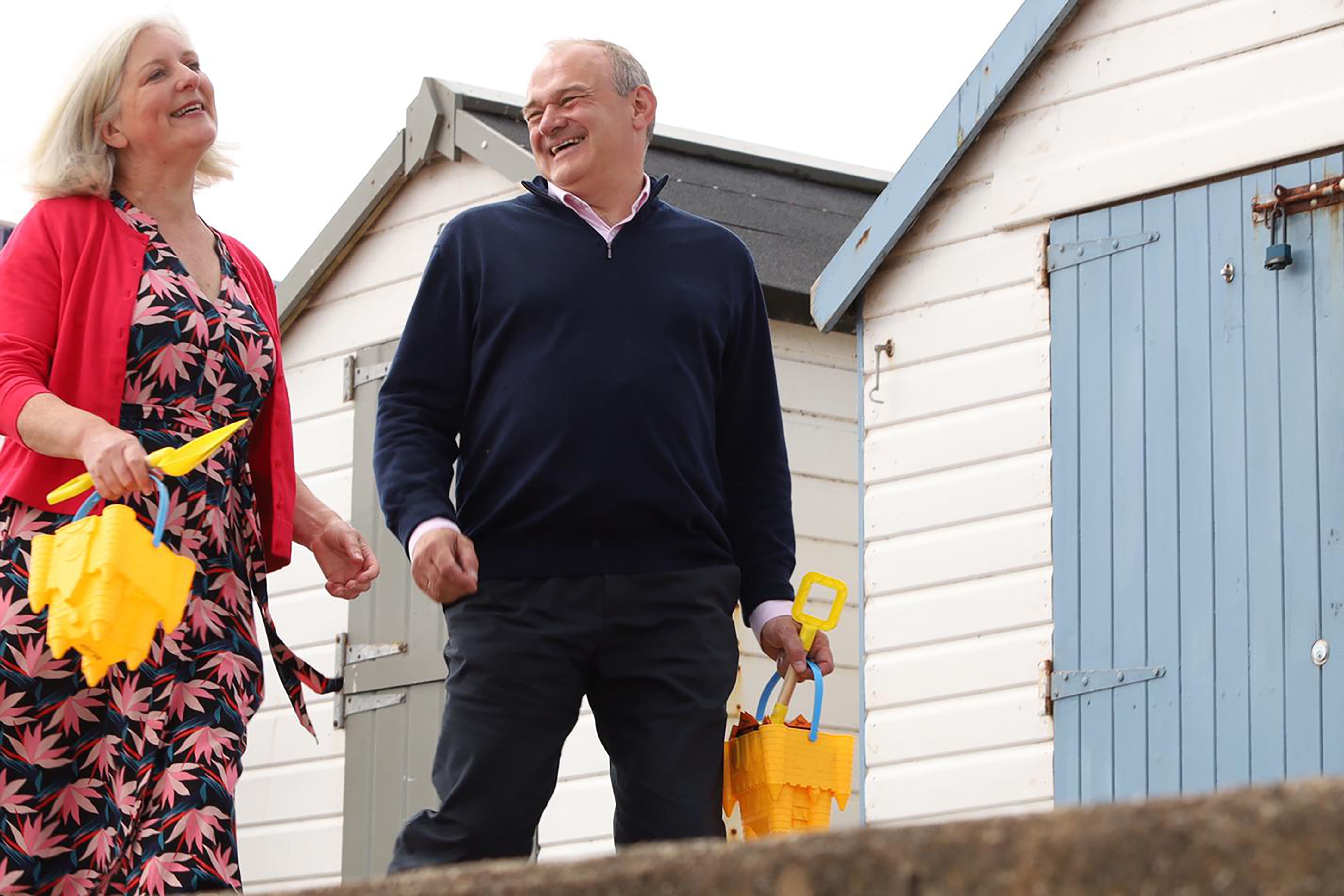Liberal Democrats seek recovery in former ‘yellow wall’ of South West
The Lib Dems are the main challenger in half of the 50 seats the Tories are defending in the region.

Recent general elections have turned south-west England into a Conservative fortress and left both Labour and the Liberal Democrats with barely a toehold in the region – while also leaving the Tories with a lot of seats to defend.
A redrawing of boundaries means the South West now has 58 constituencies, up from 55 in 2019, and had the last election been fought on these new boundaries it is calculated the Conservatives would have won 50 seats, Labour seven and the Liberal Democrats one.
Notional results for the 2019 election based on the 2024 boundaries have also been calculated, in order to determine the scale of the challenge facing candidates this time, and it is these notional majorities that are used below.
The Lib Dems are the main challenger in half of the 50 seats the Conservatives are defending in this region, many of which were once held by the party.
One such seat is Cheltenham, the Lib Dems’ top target in the South West, which was held by them continuously from 1992 to 2015 before falling to the Conservatives.
The Tory candidate is Justice Secretary Alex Chalk, who has won the seat at each of the past three general elections, but who is defending a tiny majority of just 1,421.
St Ives (Tory majority 5,227) and Taunton & Wellington (8,536) are the party’s second and third targets, both of which are in former Lib Dem heartlands, likewise the more challenging targets of Devon North (14,813), Cornwall North (15,783) and Torbay (17,751).
Gaining the seat of Yeovil (Tory majority 14,638) would be particularly sweet for the Lib Dems, as it is the constituency once represented by the party’s founding leader Paddy Ashdown.
A direct swing in the share of the vote from the Conservatives to the Lib Dems of 10 percentage points would see three seats in south-west England change hands.
But a swing of 15 percentage points would see 13 Tory seats fall to the Lib Dems and represent a real comeback in the region for Sir Ed Davey’s party.
The one seat the Lib Dems are defending in south-west England is Bath, which was first won for the party by Wera Hobhouse in 2017.
While the region is primarily a Conservative-Lib Dem battleground, Labour has a handful of targets here, two of which – Stroud and Truro & Falmouth – are highly marginal seats, with Tory majorities of 2,467 and 4,459 respectively.
A swing from the Conservatives to Labour of 4.1 percentage points would see both of these constituencies change hands, while a swing of 10 points would see seven seats fall to Labour, including Bournemouth East, a seat held by the Tories ever since its creation in 1974.
Gloucester is an example of a so-called “bellwether” seat, which means the result in the constituency has a habit of matching the overall result of the general election – in this instance, at every election since 1979.
The seven constituencies Labour are defending in the South West are all in urban areas, with five in Bristol, one in Exeter and one in Plymouth.
One of the party’s notional defences, the new seat of Bristol Central, is a top target at this election for the Green Party, which is hoping to capitalise on the success it enjoyed in recent local elections when it won every one of the council seats in the constituency.
The notional 2019 result for Bristol Central puts Labour on 58% of the vote and the Greens in second place on 26%, with the Greens needing a swing of 16.3 percentage points to take the seat.
Meanwhile, former Leader of the Commons Jacob Rees-Mogg is the Conservative candidate in the newly-created constituency of Somerset North East & Hanham.
He is one of the most high-profile Tories seeking re-election in the region and is defending a notional majority of 16,389 – large enough to avoid being a top target, but not large enough to be considered entirely safe, with Labour needing a swing of 14.3 points to take the seat.
All notional majorities and swings mentioned above have been compiled by professors Colin Rallings and Michael Thrasher of the University of Plymouth, on behalf of BBC News, ITV News, Sky News and the PA news agency, and will be used as the basis for reporting the gains and losses at the General Election.